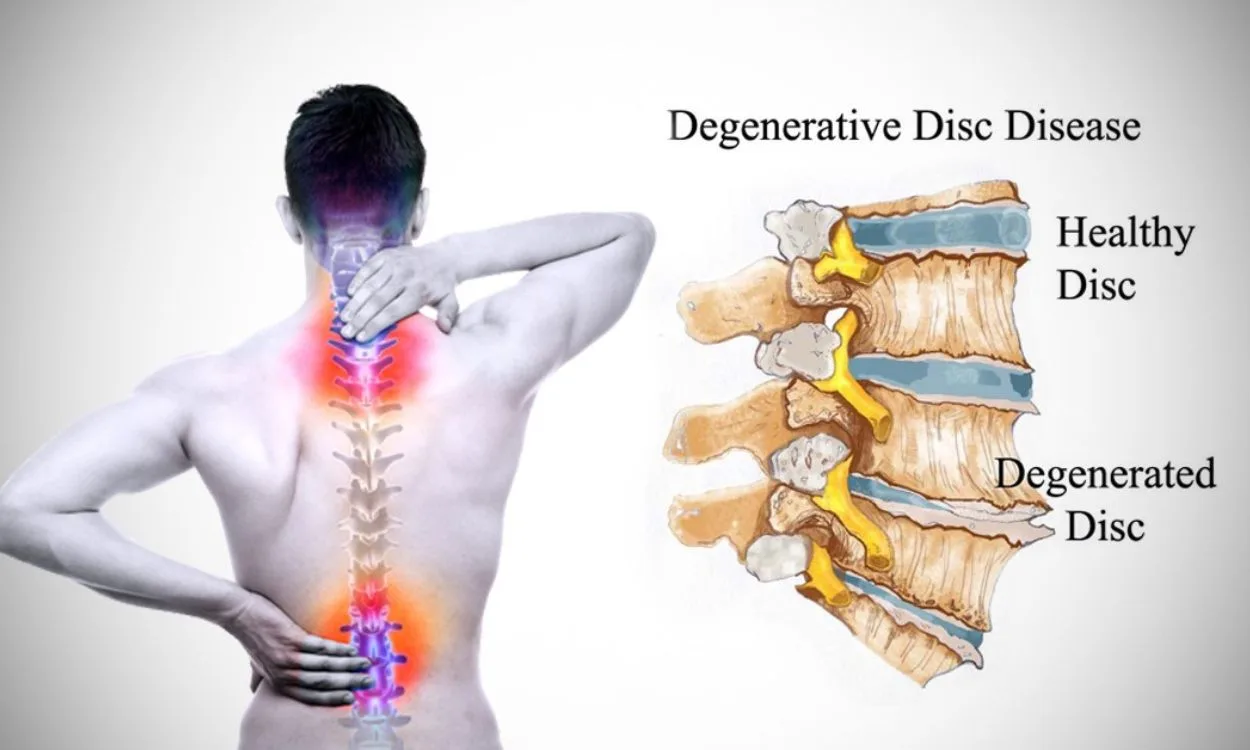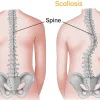How Does Degenerative Disc Disease Lead to Back Pain?
Degenerative disc disease is a common condition that affects the spine, particularly the intervertebral discs. These discs are the cushion-like structures between the vertebrae, which provide support and allow for movement in the spine. Over time, these discs can degenerate, leading to various symptoms, including back pain. In this article, we will explore the causes, symptoms, and treatment options for degenerative disc disease, focusing on how it can lead to back pain.
Causes of Degenerative Disc Disease
Degenerative disc disease is primarily caused by age-related wear and tear on the intervertebral discs. As we grow older, the discs lose their water content, making them less flexible and more susceptible to damage. Other factors that can contribute to the development of degenerative disc disease include:
- Genetics: Some people may have a hereditary predisposition to developing this condition.
- Smoking: Smoking can decrease the oxygen and nutrient supply to the discs, accelerating their degeneration.
- Injury: Trauma or injury to the spine can damage the discs and increase the risk of degeneration.
- Repetitive activities: Repetitive activities or heavy lifting can put excessive stress on the discs, leading to degeneration over time.
Symptoms of Degenerative Disc Disease
Degenerative disc disease can cause a range of symptoms, with back pain being the most common. The pain typically worsens with movement and may be accompanied by stiffness and muscle spasms. Other symptoms may include:
- Radiating pain: The pain may extend to the buttocks, thighs, or legs, depending on the location of the affected disc.
- Numbness and tingling: Compression of spinal nerves can cause numbness, tingling, or weakness in the arms or legs.
- Difficulty in movement: The decreased flexibility in the spine can make it challenging to perform certain activities or maintain proper posture.
- Pain relief with rest: Resting or changing positions can provide temporary relief from the pain.
Diagnosis and Treatment of Degenerative Disc Disease
If you are experiencing persistent back pain or other symptoms, it is essential to consult a healthcare professional for an accurate diagnosis. The diagnosis of degenerative disc disease typically involves a combination of medical history, physical examination, and diagnostic tests such as X-rays, MRI scans, or discography.
Treatment options for degenerative disc disease aim to alleviate pain, improve mobility, and manage any underlying conditions. These may include:
- Medications: Over-the-counter pain relievers, nonsteroidal anti-inflammatory drugs (NSAIDs), or muscle relaxants may be prescribed to manage pain and inflammation.
- Physical therapy: Customized exercise programs and physical therapy can strengthen the muscles supporting the spine and improve flexibility.
- Lifestyle modifications: Maintaining a healthy weight, practicing good posture, and avoiding activities that aggravate the pain can help manage symptoms.
- Injections: Corticosteroid injections or nerve block injections may be recommended to reduce pain and inflammation in the affected area.
- Surgery: In severe cases where conservative treatments are ineffective, surgical options such as discectomy, spinal fusion, or artificial disc replacement may be considered.
How Fitpaa Can Help with Degenerative Disc Disease
Fitpaa, an AI-driven health and fitness app, can provide valuable support and guidance for individuals dealing with degenerative disc disease. With its personalized approach and range of features, Fitpaa can help users manage their condition and improve their overall well-being. Here’s how Fitpaa can assist:
- Metabolism Assessment: Fitpaa’s Metabolism Monitoring Technology can assess the individual’s metabolism and provide insights into optimizing their overall health.
- Expert Guidance: Fitpaa offers access to a team of fitness coaches, nutritionists, and doctors who can provide expert advice tailored to the individual’s specific needs.
- Personalized Fitpaa Capsule: Based on the individual’s metabolism, health goals, lifestyle, and eating habits, Fitpaa prepares a personalized health and fitness plan called the Fitpaa Capsule. This capsule combines medical therapy, medical exercise therapy, medical nutrition therapy, and cognitive behavior therapy to optimize metabolism and achieve health and fitness goals.
- Real-time Guidance: Fitpaa’s Realtime Guidance technology incorporates habit building, timely nudging, and purpose-finding from cognitive behavioral therapy to keep users motivated and inspired throughout the day.
- Fitpaa Mobile App: The Fitpaa app provides a range of tools, including a virtual workout trainer, diet tracker, performance tracking, and progress tracking, making it easier for users to follow their Fitpaa Capsule.
By incorporating Fitpaa into their lifestyle, individuals with degenerative disc disease can benefit from a holistic approach to health management and achieve their fitness goals with guaranteed results.
To experience the transformative power of Fitpaa and take control of your health and fitness, download the Fitpaa app today. Your well-being is our mission!









